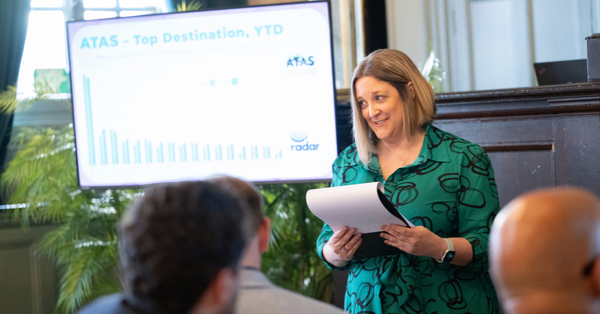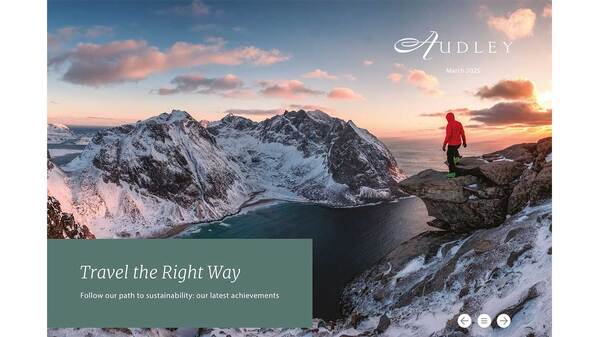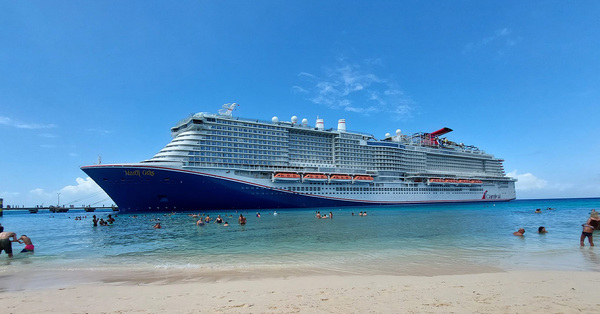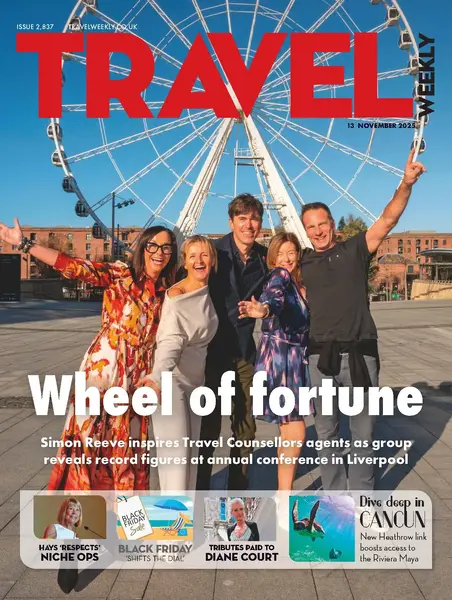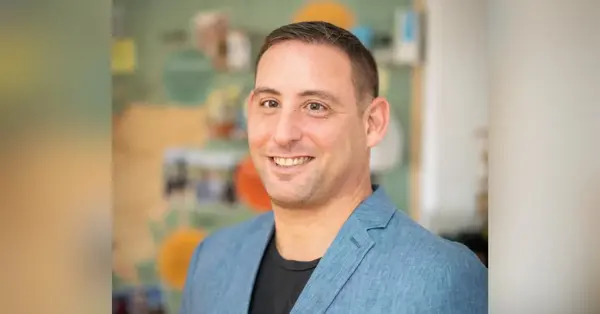Interview: Tui accessibility manager Marina Snellenberg
Globe Travel Awards winner tells Samantha Mayling how a more personalised approach to clients’ access needs is paying off
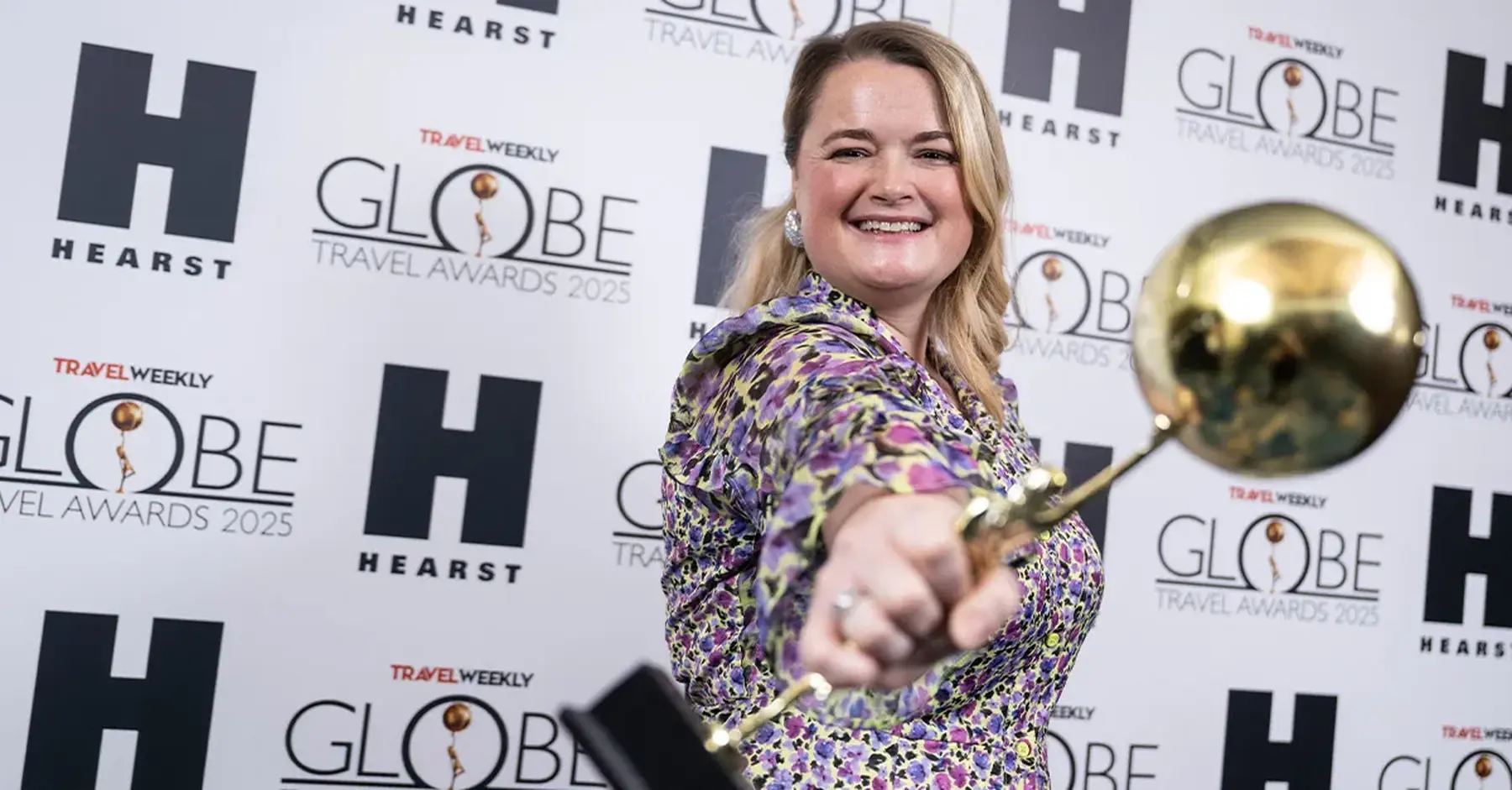
Accepting the Unsung Hero honour at the Globe Travel Awards in January, Tui’s accessibility manager Marina Snellenberg said: “I can’t imagine doing any other job; this is my vocation, my passion.”
Her passion was fired by experiences with her late husband Alex, driving her to embed accessible travel throughout the company.
Having met while Marina was working as cabin crew, Alex was later diagnosed with motor neurone disease at the age of 30. Over the next five years, his health deteriorated, but the couple were determined to carry on travelling.
“I experienced travelling with someone who had needs, but also evolving needs: we started with a manual wheelchair, but ended up with a power chair, and him unable to speak,” she recalls.
“When Alex passed away in 2016, I needed to share my insights. Because we’d made amazing memories with great experiences, [I felt] others would be wanting the same. I approached Tui – it opened its doors and here we are, eight years later.”
Snellenberg’s first aim with Tui UK & Ireland was to “bring everyone on board” and to define a “solid, accessible holiday strategy that not only delivers on this ingrained passion that we have – for our customers to live happy – but also delivers a commercial benefit for us as a business”.
She says: “We want to do right for all customers... those with access needs need a little more of a personalised approach. We want to make it easy, because sometimes it can be very difficult.
“We don’t want to create a separate, accessible holidays range... we’re embedding it into what we do and making sure we share as much information as possible ahead of booking.
“Accessibility is very personal: treatments happen; conditions deteriorate, unfortunately. So we moved away from labels. We don’t have a stamp on our websites – we have an information-based approach embedded in the overall customer journey.”
Travel guides
Tui partnered with accessibility surveyor AccessAble, which has created detailed access guides for more than 300 of Tui’s hotels.
“It is a pan-disability information-gathering exercise, including the steepness of ramps, contrast of colour on the walls, noise levels, seating, adapted rooms,” explains Snellenberg.
“Those guides are available throughout the customer journey.
“With our website, you can filter hotels with this accessibility information. For customers with access needs in their research phase, this information is almost their number-one search criterion, alongside destination and date.”
The operator is also trialling sensory rooms in two Tui Blue hotels this year, for guests with neurodivergent needs.
AccessAble has also surveyed a number of UK airports to produce guides for Tui customers.
“We support [customers], arranging airport assistance from start to finish,” she adds. “Our lovely airport representative team greet customers at check-in with bright Tui smiles on their back.
“We can send sunflower lanyards for free, ahead of travel, from our dedicated assisted travel team or retail shops. And we also ran training courses last year for cabin crew and pilots.”
Snellenberg and her colleagues are proud of their achievements, but she believes more can be done.
“We haven’t reached the peak yet,” she says. “Even if [businesses] do a little bit, you should be proud because you are still making a difference. It’s a collective effort, doing what’s right and what makes commercial sense.
“About 20% of the UK population has an access need, so we should assume that about 20% of our colleagues also have an access need.
“Colleagues being able to go on holiday for the first time with their families, as well as selling holidays for the first time to families that maybe wouldn’t have thought it could be possible – that is almost the best gift.”
Investment pays off
Since financial year 2019-20, bookings where at least one member of the party has an access need have increased by 145%.
“It grows year on year, because we make it easy for customers to consider us... but also because the population is growing older,” Snellenberg notes.
Soaring sales show how the investment in accessibility has paid off, she says. “It took courage from the board to sign off the initial business case and the investment needed to embark on different partnerships – AccessAble, and others such as Perfectly Autistic, which runs our neurodiversity training programmes; and SignLive, which does British Sign Language technology for our contact centre and our retail stores.
“We also collaborate with other partners, such as [inclusive marketing agency] Purple Goat.
“It is a balance between what’s the right thing to do, our legal requirement and how you frame it in a way that it makes commercial sense,” she explains.
Bookings were boosted further following a social media campaign last year that used six influencers to showcase Tui’s service for clients with different access requirements.
“The comments were 98% positive, which is amazing,” recalls Snellenberg. “It demystified travel and showcased what we can do. It was fantastic.”
The influencers also took part in a panel about their experiences, with more than 150 colleagues listening to identify any opportunities for improvement.
Assisted travel team
The dedicated assisted travel team of almost 100 in the contact centre has grown from strength to strength, says Snellenberg, and is one of the centre’s highest-performing teams.
“Customers really value that knowledge and expertise,” she says. “[We get] handwritten poems, notes, cards, emails and social media posts about them.”
The general enquiries team also answers some accessibility questions, with queries dealt with by colleagues within the homeworking team who have received extra training on issues such as airport assistance. If there are hitches on holiday, Tui can offer tailored support; for example, by sourcing adapted rooms if clients need to stay overnight at an airport.
“It is a passion that will never die, because when I hear about the real-life stories of our customers, or our colleagues being able to support customers, it fuels the fire,” she adds.
“We are embarking on a transformation journey, with the opportunity to expand what we’ve done at Tui UK & Ireland and bring it to colleagues across the Tui Group.”
How can agents help clients with accessibility needs?
Every Tui retail agent receives accessibility training from the start to ensure they have the latest information.
“The language we use is constantly evolving, so we need to be up to date and listen to the disabled community,” explains Snellenberg. “If they say, ‘We’re not using this term anymore’, then we don’t use it.”
A card on agents’ desks prompts clients to enquire about support such as access guides, accessible transfers, sign language and airport assistance.
“We also have neurodiversity shopping within retail stores. Customers can tell us [in advance] what they need, such as step-free access, low-level lighting, or preferably no smells, or quieter hours, or this sort of hotel, or my child is non-verbal,” adds Snellenberg.
“Our third-party agent portal has an accessible travel section with reasons why your customer should choose Tui.”
For agents still a little wary of serving customers with a disability, she says: “You’ve probably already been serving customers with needs. Maybe they haven’t shared it specifically, or you haven’t asked the questions, but you’ve already done it.
“It’s a wonderful opportunity to showcase your skills as an agent, personalising the holiday and tailoring to their needs.
“For us, it’s not a box-ticking exercise. This is a fully fledged strategy across all levels of the organisation. It’s a great way forward and sets us apart.”
You have viewed both of your 2 free articles this month as an unregistered user
To continue reading, please register with Travel Weekly free of charge, or if you have already registered click here to login


